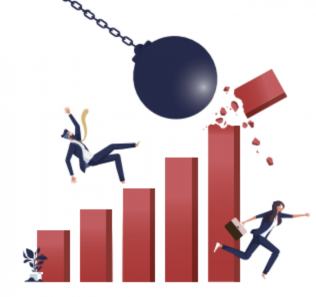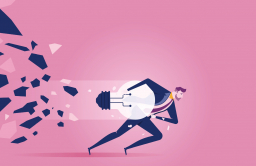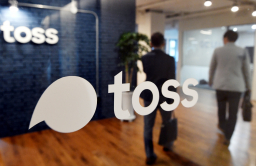-
KOSPI 2577.27 -2.21 -0.09%
-
KOSDAQ 722.52 -7.07 -0.97%
-
KOSPI200 341.49 +0.02 +0.01%
-
USD/KRW 1396 -2.00 0.14%
Startup CEOs suffer depression, anxiety: survey
Funding constraints and human relations are cited as the main causes of stress
By
Jul 21, 2022 (Gmt+09:00)

About one-third of South Korean startups' chief executives are more prone to stress and depression than general adults, with funding constraints and human relations cited as the main causes of their headaches, a survey shows.
Among the 271 CEOs of domestic startups, 32.5% are suffering from moderate to severe depression, two times higher than the average 18.1% for general adults in South Korea, according to Seoul National University Bundang Hospital and a startup accelerator D.Camp on Wednesday.
Including those with mild symptoms, 67.9% of the CEOs are exposed to depression, their joint survey found.
The two institutions carried out a mental health survey of South Korean startup CEOs between April 4 and 19. It was the first such analysis conducted by a domestic medical institution.
By age, about half of the CEOs are in their 30s, with those in their 40s and above making up 35%. Of the respondents, men account for 83.8%, with women for 16.2%.
According to the survey, they feel more anxious and depressed after more than five years in their jobs, compared to those in early-stage startups.
By gender, female CEOs are more vulnerable to stress than their male counterparts.
| No. of employees of domestic startups | |
| More than 30 | 11.1% |
| Between 10 and 29 | 32.1% |
| Between 6 and 9 | 25.1% |
| Fewer than 5 | 33.2% |
| Source: A survey of 271 S.Korean startups' CEOs between April 4 and 19, 2022 | |
| Causes of startup CEOs' stress | |
| Funding constraints or fundraising | 44.6% |
| Organization management and human relations | 20.3% |
| Poor performance or underperformance | 19.6% |
| Excessive workload | 5.5% |
| Poor leadership | 2.6% |
| Source: D.Camp and Seoul National University Bundang Hospital | |
LACK OF SLEEP
Asked about whether they get enough sleep, 60.9 of the respondents said they suffer from insufficient sleep, almost twice the average 34% of general adults who have symptoms of sleep deprivation.
| The percentage of CEOs with symptoms of depression and anxiety | ||
| Startup CEOs | General adults in South Korea | |
| Depression | 32.5% | 18.1% |
| Anxiety | 20.3% | 12.2% |
| Source: D.Camp and Seoul National University Bundang Hospital | ||
INTRINSIC MOTIVATIONS
The survey report concluded that startup CEOs can boost their mental health by increasing intrinsic motivations such as self-achievement and self-development from work and pride in their abilities.
By comparison, external motivations such as monetary compensation and gaining recognition have less to do with their mental health.
| Why don't startup CEOs see doctors to improve mental health | |
| They think their mental health is not serious enough to require medical care | 46.9% |
| No time to visit a hospital | 39.8% |
| Afraid of appearing weak | 10.2% |
| Source: D.Camp and Seoul National University Bundang Hospital | |
Write to See-Eun Lee at see@hankyung.com
Yeonhee Kim edited this article
-
 Korean startupsKorean startups turn to restructuring amid liquidity concerns
Korean startupsKorean startups turn to restructuring amid liquidity concernsJul 11, 2022 (Gmt+09:00)
-
Jul 11, 2022 (Gmt+09:00)
-
Jun 29, 2022 (Gmt+09:00)




